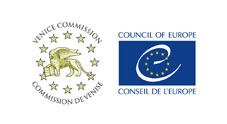
Venice Commission Rejects Bill 'On Deoligarchization'
By Liza Mchedlidze
Wednesday, June 14, 2023
The Venice Commission has assessed the revised bill on de-oligarchization and expressed doubts regarding the effectiveness of the changes made to align it with the standards of the Council of Europe on human rights, democracy, and the rule of law. In their conclusion, the Commission stated that the amended draft law should not be approved by the parliament and emphasized the need to implement a "systemic approach" rather than a "personal approach."
The Venice Commission recommends that the draft law not be adopted and that the Georgian authorities develop corrective, additional laws and measures to combat oligarchic influence. These include:
. Implementation of effective competitive policies.
. Strengthening the fight against corruption at the highest level.
. Ensuring transparency in public procurement.
. Enhancing the pluralism of mass media and transparency of mass media owners.
. Refining anti-money laundering policies, including transparency of legal entities and entities.
. Strengthening existing control mechanisms and rules for financing political parties and election campaigns.
. Making changes in tax legislation to increase the independence and efficiency of the main regulatory and controlling bodies.
. The Venice Commission emphasizes the need for a judicial system reform aimed at achieving independence and impartiality, including the Supreme Council of Justice.
"The Venice Commission emphasizes that the danger of concentrating significant influence over economic, political, and public life in the hands of a private individual may exist in any country. Most countries have developed and implemented interrelated legislative, administrative, economic, and other measures to prevent this concentration from having a destructive effect on democracy, the rule of law, sovereignty, and human rights. Instead of adopting this systemic approach, Georgia has opted for a 'personal approach' by preparing a law on de-oligarchization. This 'personal approach' aims to identify individuals as 'oligarchs' based on certain criteria such as wealth, ownership of mass media, etc., and imposes various restrictions. Although most of the restrictions have been removed in the revised version, the potential political misuse and application of provisions in this bill still pose a serious threat to the rule of law and political pluralism. We acknowledge that there is no universal solution in the fight against oligarchic influence, and in exceptional, critical cases, such as during a government overthrow, radical decisions of a personal nature may be justified on a temporary and emergency basis," the document states.
The Venice Commission believes that this "personal approach" should be seen as a supplement to a "systemic approach,"not as an alternative.
"These measures must be developed in full compliance with political pluralism and the rule of law, particularly with strong guarantees of the decision-making body's independence and due legal procedures. Currently, the draft law cannot be considered a democratic and effective response. Such de-oligarchization legislation can become a dangerous tool in the hands of political opponents of the government, leading to persecution," the conclusion reads.

